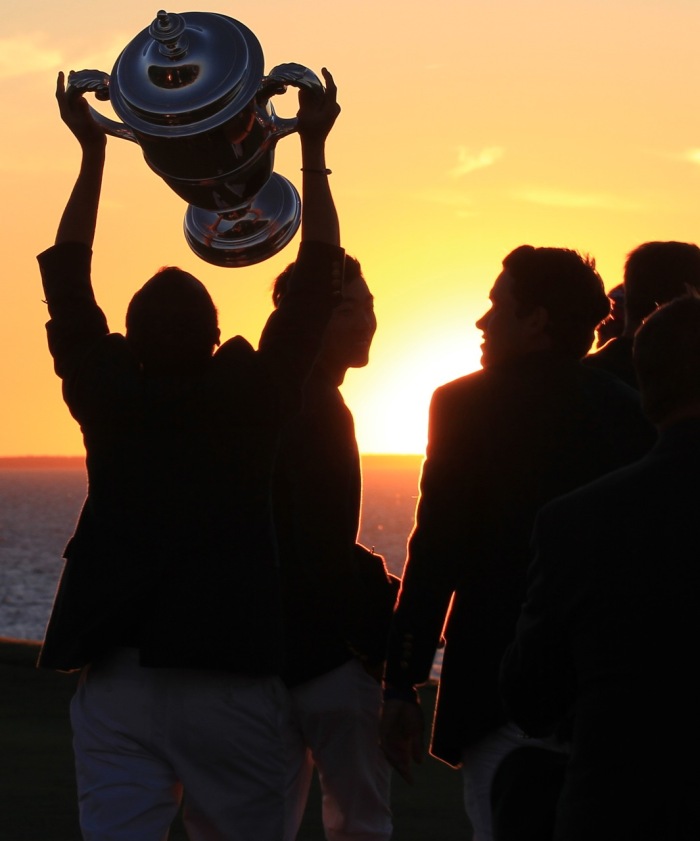Should The Walker Cup Be Played Over Three Days?
/Ryan Lavner explores a great topic which is likely not going to go anywhere because the organizations involved are so conservative, but it's still worth kicking around if you care about the Walker Cup competition.
“The event is so big now,” said Alabama’s Cory Whitsett, “that it almost owes it to itself.”
Unlike the Ryder Cup and Curtis Cup, the Walker Cup has never been played over three days. The format has changed over the years, however, and it currently calls for two days of double sessions: foursomes then singles.
That’s a lot of high-stakes golf to cram into two days, and it leaves little time for the suspense to build, particularly before Sunday singles. With the U.S. leading 10-6 heading into the final session Sunday, the Americans had less than an hour to eat lunch and practice before heading right back onto the course. Some drama.
“It took a long time to get to the matches,” Cal’s Michael Kim said, “but once it was here, it seems like it just went by real quick.”
While I never thing we need to add more days or prolong events in our sport that is already oversaturated, the pacing of the Presidents Cup should be noted in this discussion. It's just a better feel for everyone involved to play that one over four days instead of three (like the Ryder Cup). The same would happen with the Walker Cup if they opened with a flag raising ceremony, played foursomes. Then played singles Sunday (with all twenty players please) followed by the 36-hole day of foursomes and singles on Sunday.
Since the USGA appears committed to taking this event to really special courses, selfishly two days is not enough to give the public a chance to eavesdrop on gems like National or LACC. A third day would not change the equation for the club except perhaps in making Thursday another day of shuttling spectators and manning concession stands.
But if golf is the most important thing, a third day allows the players a better chance to perform and gives the event a better chance of being seen both in person and on television.












